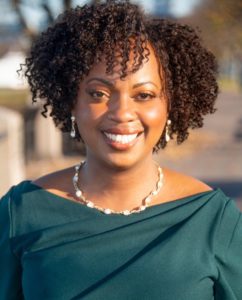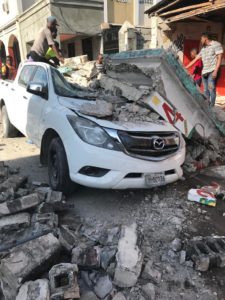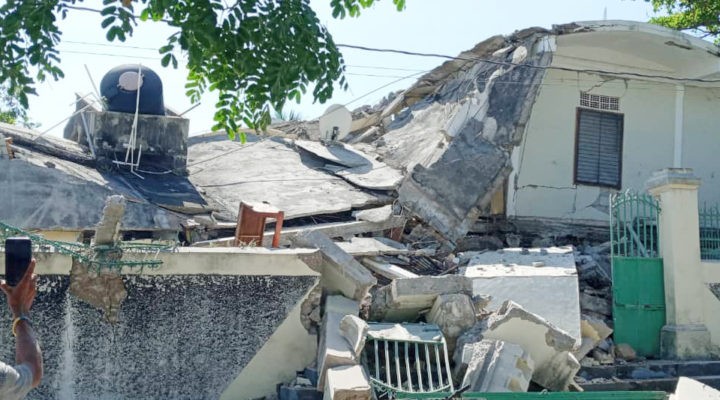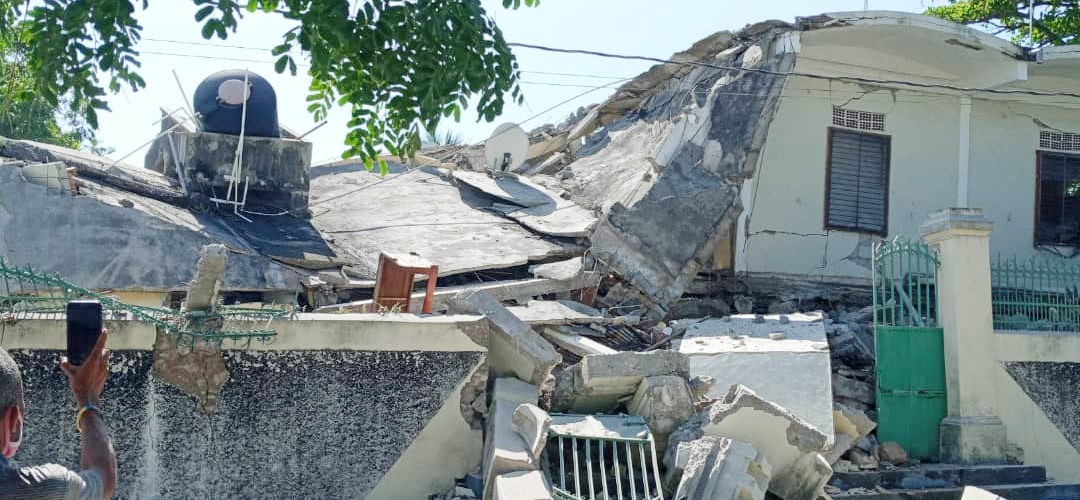Baptist organizations from around the world are joining forces to provide financial, material and spiritual care to Haitians reeling from the Aug. 14 earthquake that killed at least 2,200, injured more than 12,000 and flattened tens of thousands of homes, schools and churches combined.
The Baptist World Alliance Forum for Aid and Development, known as BFAD, hosted an Aug. 19 Zoom meeting of 34 Baptist disaster response leaders from Africa, Asia and Europe to the Caribbean, Sri Lanka and the United States. Their goal is to launch a unified campaign in response to the humanitarian catastrophe.
“It’s about being unified. It’s about recognizing that we can be more impactful together,” said Marsha Scipio, director of BWA’s global aid operations and facilitator of BFAD.

Marsha Scipio
“It is understanding our call as Baptists to walk among those who are most vulnerable. This is biblical compassion in action, and that is what is compelling,” she said. “It was equally inspiring to see three people from Brazil, where they are going through immense challenges with the pandemic right now, and yet here they are saying, ‘How can we help in Haiti?’”
But Scipio and other disaster relief officials also acknowledged the daunting challenge of getting short- and long-term aid to a nation already traumatized by the July assassination of Haitian President Jovenel Moïse, persistent gang violence, COVID-19 and unrepaired damage from a 2010 quake and 2016 hurricane.
And the situation was made even worse when Tropical Storm Grace brought torrential downpours and mudslides just two days after the 7.2-magnitude quake pulverized southwest Haiti.
“And all of that on top of Haiti being the poorest nation in the Western hemisphere,” Scipio said.
BFAD members are working closely with Mission des Églises Baptistes du Sud d’Haiti, or MEBSH. The Baptist convention reported that more than 225 of its 488 churches were destroyed by the earthquake along with 155 schools and the homes of 1,500 members, said Eddy Ruble, international disaster response coordinator for the Cooperative Baptist Fellowship and a member of the BFAD operational task force.
Relief organizations have learned that at least 70,000 homes were destroyed and another 100,000 damaged, Ruble said.
But access, along with magnitude, is part of the challenge facing responders, he added. “It sounds like just getting supplies in will be a challenge” because gangs control the key roads from Port-au-Prince to the rural south and they are allowing only a fraction of aid convoys through.
“One church was holding a funeral service when the quake hit and a number were killed.”
The BFAD effort is critical because “it’s about empowering the local church to respond to local needs and build their capacity as they are doing that,” Ruble said.
The campaign will include joint fundraising, creating an inventory of resources and needs and providing trauma support for clergy and other care workers.
“At least three pastors were killed in the quake,” Ruble said. “One church was holding a funeral service when the quake hit and a number were killed, so it’s important we do pastoral support for the affected pastors.”
The unified effort seeks to avoid the duplication of effort that can cause waste and overwhelm local leaders and organizations, he said.

Eddy Ruble
But Ruble added that participation in BFAD does not preclude CBF and other participants from acting independently if they have ongoing projects or personnel in the affected areas.
CBF is coordinating with Haiti field personnel and nurse Jenny Jenkins’ ongoing efforts to provide tarps, drinking water and other supplies to some affected areas, he said.
The American Baptist Churches in the USA said its missionaries and other International Ministries officials are assessing how to best respond. “IM’s leadership is consulting with … Haitians in the Dominican Republic and Mexico, as well as our Haitian partners and global Baptist and ecumenical partners to determine how to offer relief, aid, and support most effectively,” the denomination said in a news release.
The Lott Carey Baptist Foreign Mission Society announced a pledge of $50,000 for Haiti earthquake relief.
 “Lott Carey stands with our sisters and brothers in Haiti as they dig out of yet another horrific disaster,” Executive Secretary-Treasurer Emmett Dunn said in the release. “Hearing the stories from our partners on the ground awakens unpleasant memories of the earthquake of 2010, which some have still not fully recovered.”
“Lott Carey stands with our sisters and brothers in Haiti as they dig out of yet another horrific disaster,” Executive Secretary-Treasurer Emmett Dunn said in the release. “Hearing the stories from our partners on the ground awakens unpleasant memories of the earthquake of 2010, which some have still not fully recovered.”
But the struggles aren’t limited to Baptist organizations. An official with Church World Service said it has had difficulty assessing the damage in some of the more rural parts of southern Haiti where it has historically served.
“The material and emotional damage is monumental, but getting in is impossible for most agencies,” said Martin Coria, regional director for Latin America and the Caribbean with the global faith-based aid organization. “The magnitude and the scope of the damage will take weeks if not months to be assessed and even then it will be a fragmented effort.”
Based on experience from the 2010 earthquake and scattered reports coming in more recently, responders know that psycho-social support, water reservoirs and school and home repairs will be among the top needs, he said.
For now, aid agencies are hearing that stranded communities are doing what they can to improve their situations. “People are traumatized but they are calm. They are organizing and they are working,” Coria said.
Editor’s note: BWA is accepting contributions for Haiti relief online.


